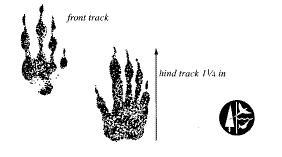Nebraska Game and Parks Commission

Nebraska Game and Parks Commission: Publications
Document Type
Article
Date of this Version
2011
Citation
Schneider, R., K. Stoner, G. Steinauer, M. Panella, and M. Humpert (Eds.). 2011. The Nebraska Natural Legacy Project: State Wildlife Action Plan. 2nd ed. The Nebraska Game and Parks Commission, Lincoln, NE.
Abstract
Nebraska’s rich biological diversity is composed of thousands of plant and animal species interacting with each other and the environment. The flora and fauna of the state, along with the natural habitats they occupy, form Nebraska’s natural heritage – a legacy that should be treasured just as much as our cultural heritage. Unfortunately, populations of many once common species have declined because of a variety of stresses, including habitat loss, habitat degradation, diseases, and competition and predation from invasive species. While conservation actions in the past have had notable successes, they have not been sufficient to stem the overall tide of species decline. There is a need for a comprehensive, systematic and proactive approach to conserving the full array of Nebraska’s biological diversity. The goals of the Nebraska Natural Legacy Project are to:
1. Reverse the decline of at-risk species (and avoid the need for state or federal listing as threatened or endangered)
2. Recover currently listed species and allow for their de-listing
3. Keep common species common
4. Conserve natural communities
Almost all existing natural habitat in Nebraska, and the biological diversity it supports, resides on lands under private ownership. All Nebraskans can benefit from the strong conservation tradition and sound stewardship of private landowners. The Nebraska Natural Legacy Project seeks to continue this tradition, while at the same time creating new opportunities for collaboration between farmers, ranchers, communities, private and governmental organizations and others for conserving Nebraska’s biological diversity, our natural heritage. The Nebraska Natural Legacy Project is non-regulatory, voluntary, incentive-based conservation. As stewards for the next generation, it is everyone’s responsibility to ensure the treasures that were handed to us by nature and our predecessors are still here for future generations of Nebraskans to enjoy.


Comments
(c) Nebraska Game and Parks Commission, 2011